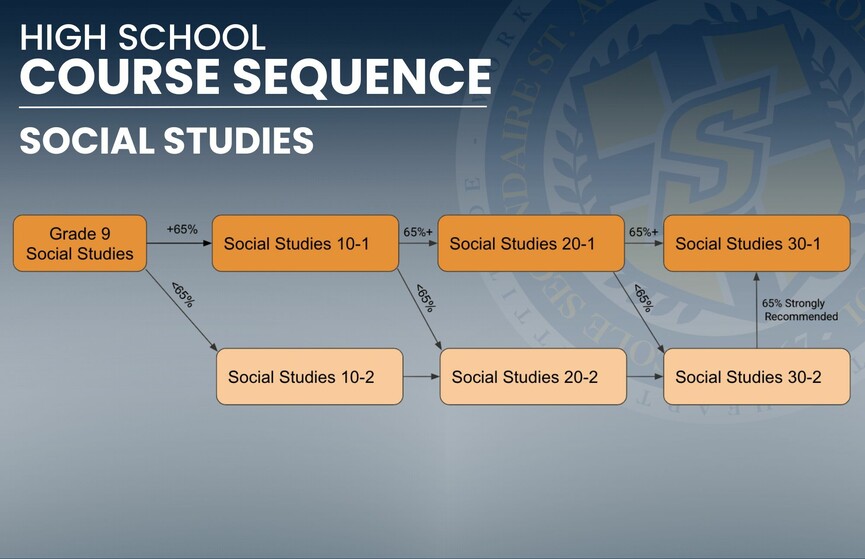Social Studies provide opportunities for students to develop the attitudes, skills and knowledge that will enable them to become engaged, active, informed and responsible citizens. Recognition and respect for individual and collective identity is essential in a pluralistic and democratic society. Social studies help students develop their sense of self and community, encouraging them to affirm their place as citizens in an inclusive, democratic society.
The program emphasizes the importance of diversity and respect for differences as well as the need for social cohesion and the effective functioning of society. It promotes a sense of belonging and acceptance in students as they engage in active and responsible citizenship at the local, community, provincial, national and global level.
In order to receive an Alberta High School Diploma, students must complete either a Social 30-1 or Social 30-2.

